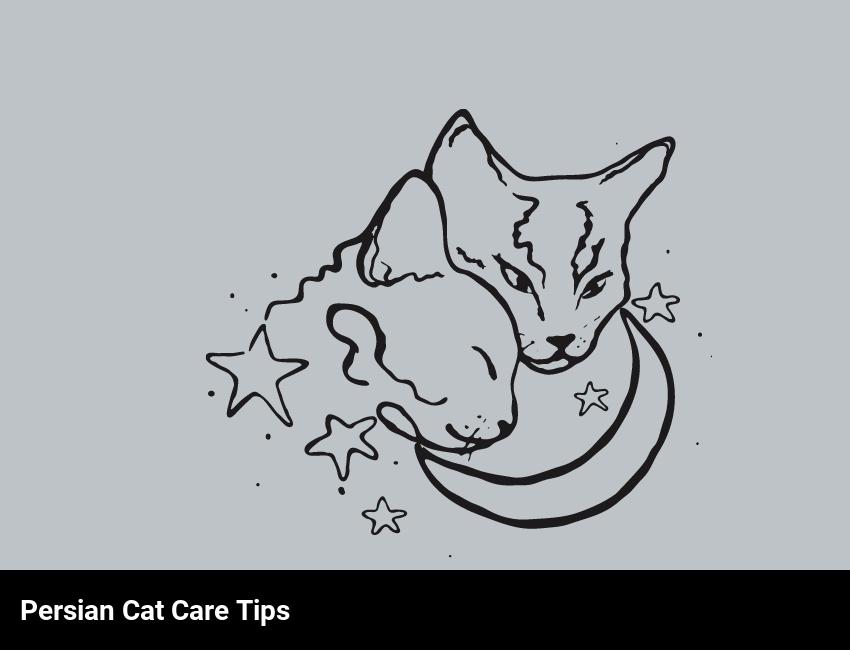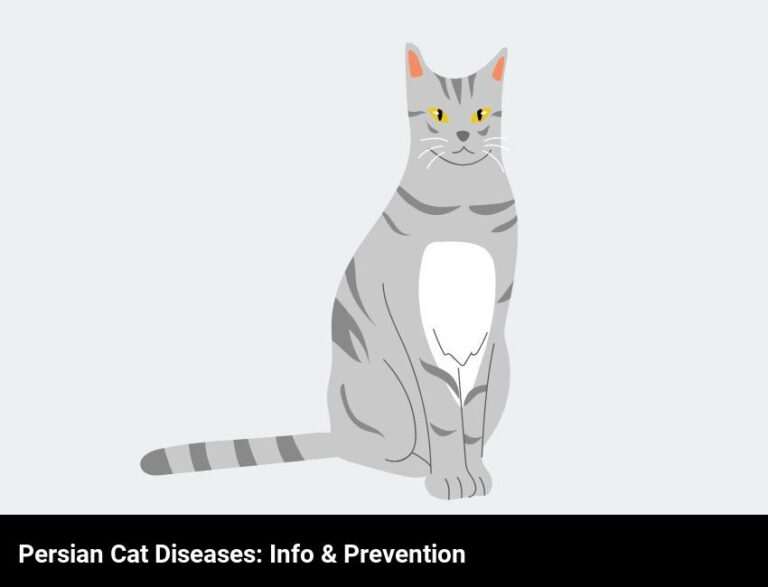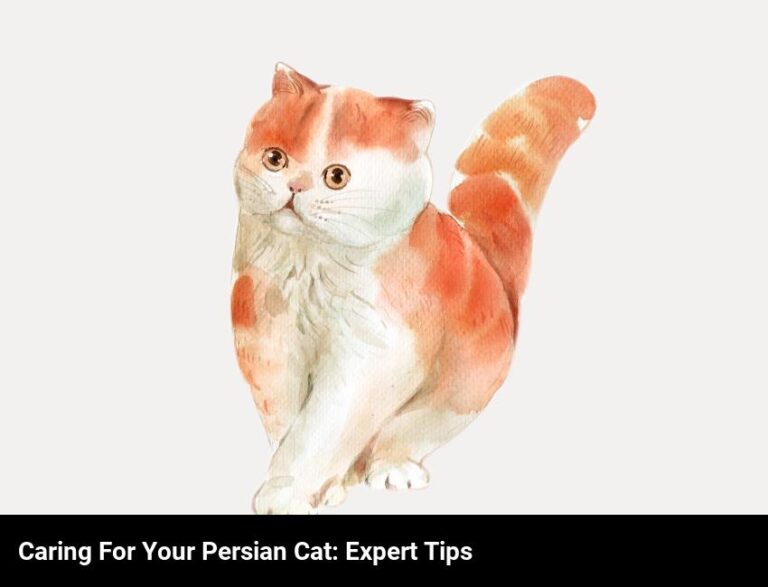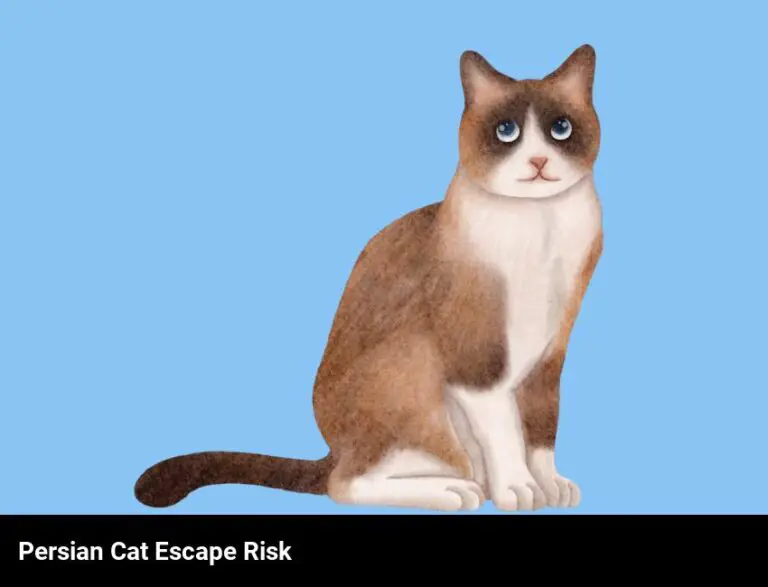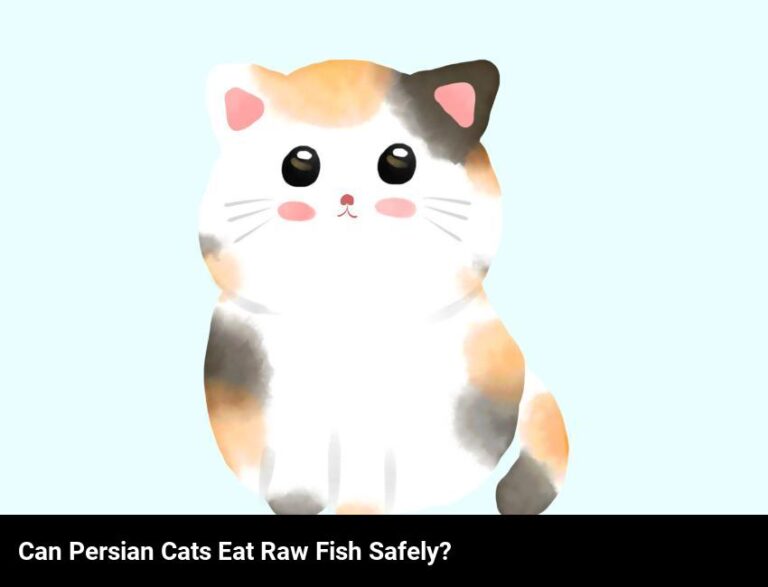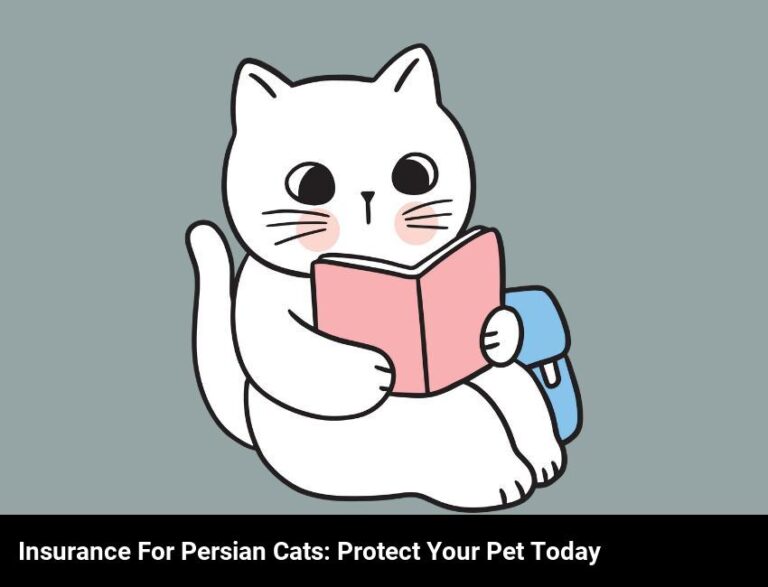Persian Cat Care: Do’s And Don’ts
Do: Provide Persian cats with daily brushing to keep their coat healthy and tangle-free. Don’t: Over bathe Persian cats, as this can cause skin irritation and dryness.
As an owner of a Persian Cat, I know the joy of having such a lovely companion. They are beautiful, loving, and curious animals. Taking care of them is not only a great responsibility but also a great pleasure. To ensure that my Persian Cat is healthy and happy, I need to know the dos and Don’ts of Persian Cat care.
It’s important to provide the right kind of diet, proper grooming, an ideal environment, and stimulating playtime activities. I also need to be mindful of common health issues and provide the necessary medical care for my Persian Cat. With the right knowledge, I can equip myself with the tools to ensure my Persian Cat is well taken care of.
In this blog, I will be sharing what I’ve learned about Persian Cat care over the years. I’ll discuss the important things I need to know when it comes to feeding, grooming, environment, toys, activities, medical care and common health problems.
What should I do to ensure my persian cat is healthy and happy?
Taking care of your Persian cat starts with simple but crucial steps. Here are the dos and don’ts that will help ensure your kitty is healthy and happy!
DO:
- Provide your Persian cat with high-quality food. Look for foods that are specifically formulated for Persian cats, as their unique facial structure means they need specially tailored nutrition.
- Keep your kitty’s coat looking its best. Brush your Persian cat’s coat every day to prevent mats and tangles and keep it looking beautiful.
- Visit the vet regularly. Even if your Persian cat is healthy, it’s important to take them to the vet for regular check-ups. This will help identify any potential health issues early and allow for quick, effective treatment.
DON’T:
- Don’t skimp on the litter box. Make sure to clean your Persian cat’s litter box regularly and use good quality cat litter. This will help keep your kitty’s litter box clean and help you avoid any unwanted odors.
- Don’t forget to provide your Persian cat with the right amount of exercise. Make sure to provide your kitty with plenty of toys and activities to keep them healthy.
- Don’t neglect your Persian cat’s mental health. Spend some quality time with your cat every day, and make sure they have a cozy spot to snuggle up and rest.
By following these simple steps, you can ensure your Persian cat will stay healthy and happy for years to come.
What kind of food should i feed my persian cat?
Feeding your Persian cat the right food is essential to keeping them healthy and happy. A good diet should be made up of high-quality wet and dry food specifically formulated for cats. It should include plenty of animal proteins, vitamins, and minerals.
When looking for the right food for your Persian cat, it’s important to look for a brand that uses high-quality, natural ingredients. Avoid any products with artificial preservatives and flavors, as these can cause health problems. Also, look for a brand that offers a variety of flavors, as cats can get bored with the same food over time.
It’s also important to keep your cat hydrated by providing them with fresh, clean water at all times. You can also supplement their diet with wet food, as this will help keep them hydrated and help their digestive system work properly. Wet food also helps keep their coat and skin healthy.
Finally, it’s important to make sure your cat is getting the right amount of vitamins and minerals. Look for a food that contains taurine, an essential amino acid that cats need to stay healthy. You should also look for a brand that contains omega-3 fatty acids, which can help boost your cat’s immune system and help keep their coat and skin healthy.
Feeding your Persian cat the right food is essential for keeping them healthy and happy. Look for a high-quality brand that uses natural ingredients and offers a variety of flavors. Make sure to also provide them with plenty of fresh, clean water and supplement their diet with wet food. Finally, look for a brand that contains taurine and omega-3 fatty acids to keep them healthy and strong.
What kind of grooming does my persian cat need?
Grooming your Persian cat is an important part of keeping him healthy and looking his best. The good news is that Persian cats have long and luxurious coats that don’t require too much maintenance. To keep your Persian cat looking and feeling his best, here are some do’s and don’ts for grooming:
Do brush your Persian cat at least once a week. This will help remove tangles in their long fur, as well as any dirt or debris that may be stuck in their coat.
Do bathe your Persian cat when necessary. Depending on your cat’s lifestyle and environment, you may need to bathe him more frequently. If you do, make sure to use a gentle cat shampoo, and be sure to rinse thoroughly.
Do wipe down your Persian cat’s eyes and ears with a damp cloth. This will help keep them clean and free of debris.
Don’t use a brush or comb with metal teeth as this can scratch their skin.
Don’t use human shampoo or any other harsh chemicals that can irritate their skin.
Don’t forget to check their feet for any mats, and trim their nails if necessary.
By following these do’s and don’ts, you can keep your Persian cat looking and feeling his best. With regular grooming, you can help ensure that your Persian cat is healthy and happy for years to come.
What kind of environment should my persian cat live in?
When it comes to taking care of your Persian Cat, providing a safe, comfortable environment is essential. Fortunately, this breed is fairly low-maintenance and doesn’t require too much. Here are some key elements that your Persian Cat needs to stay healthy and happy:
First and foremost, your Persian Cat needs a place to call their own. This could be a cozy bed in a quiet corner of your home or a dedicated cat tree. Whichever you choose, make sure that it’s soft and comfortable, and has enough space for your cat to move around.
Your Persian Cat also needs plenty of places to scratch. Make sure you have a scratching post or scratching pad (or both!) in your home, and that they’re placed in places that your cat can easily access. This will help keep your cat’s claws healthy and strong, and will also save your furniture from destruction.
In addition, your Persian Cat needs a place to play and explore. This could be a separate cat tree, or it could be a designated area of your home with plenty of toys and obstacles for your cat to play with.
Finally, it’s important to make sure that your Persian Cat has access to plenty of fresh water and food. Place a food and water bowl in a convenient spot in your home, and make sure it’s always filled with fresh, nutritious food and water.
By following these simple tips, you can ensure that your Persian Cat has a safe, comfortable, and stimulating environment to live in.
What kind of toys and activities should i provide my persian cat?
When it comes to providing your Persian cat with toys and activities, there are plenty of options. The best place to start is with interactive toys that encourage interactive play between you and your cat. This can range from simple wand toys to laser pointers. You can also offer treat-based activities such as a treat ball or a puzzle toy.
Your cat may also enjoy hide and seek, or playing chase. You can easily create a ‘cat gym’ with a few pieces of furniture, such as a scratching post, a climber, or an elevated bed. Make sure your furry friend has plenty of space to explore and hide out.
Be sure to provide plenty of toys that your cat can enjoy solo, like crinkly paper balls, cardboard boxes, and feather toys. These are great for those times when you’re away or busy. You can also give your kitty access to a window perch so they can watch the world go by.
Most Persian cats love to groom, so don’t forget to stock up on grooming supplies such as combs and brushes. Regular grooming helps to keep your cat’s fur looking its best and can help to minimize shedding.
Remember that when it comes to toys and activities, the possibilities are endless. Get creative and have fun with it! Your Persian cat will thank you for it.
What kind of medical care does my persian cat need?
When it comes to your Persian cat, you want the best medical care possible. Fortunately, there are some simple do’s and don’ts when it comes to keeping your cat healthy and happy.
Firstly, make sure you take your cat to the vet for regular check-ups. This should be done at least once a year, or more often if your cat is a senior. Your vet can help you develop and maintain a health plan for your cat, which should include vaccinations, parasite control, and blood tests.
Also, try not to overfeed your cat. Persian cats are prone to weight gain, so make sure you’re feeding them the right amount of food. A high-quality diet, with plenty of protein and healthy fats, is ideal for your Persian cat. Talk to your vet about the best food for your cat’s individual needs.
You should also make sure that your cat is getting plenty of exercise. Even though Persians are known for being laid back, they still need daily physical and mental stimulation. Provide your cat with plenty of toys and activities to keep them active.
Finally, groom your cat regularly. Persian cats have a long and luxurious fur coat that needs lots of attention. Brush your cat’s coat regularly to remove dead hair and tangles. This will also help to stimulate their skin and keep it healthy.
In conclusion, your Persian cat needs regular check-ups with the vet, the right diet, lots of exercise, and regular grooming. Following these simple guidelines will ensure your cat’s health and happiness for years to come.
What kind of common health problems should i watch out for in my persian cat?
When it comes to looking after your Persian cat, one of the most important things you can do is to watch out for common health problems. While all cats are prone to certain health issues, Persian cats can suffer from a few that are unique to their breed.
One of the most common health problems among Persian cats is breathing problems. This is due to their flat face and short noses, which can make it harder for them to breathe. This can lead to snoring, wheezing and snorting, especially when they are excited. If your cat is having difficulty breathing, make sure to take them to the vet right away.
Another common health issue in Persian cats is eye problems. Their big, round eyes are prone to infections and ulcers, so make sure to keep the area around their eyes clean. You should also check their eyes regularly for any signs of discharge or irritation.
Finally, Persian cats are also prone to dental problems. Make sure to brush your cat’s teeth regularly to keep their gums and teeth healthy. If you notice any tartar buildup or any other signs of dental disease, take your cat to the vet for a checkup.
Taking care of your Persian cat involves more than just playing and cuddling. Make sure to keep a watchful eye out for any health problems that may arise. By doing so you can keep your cat happy and healthy for years to come.
What are the most important things i need to know about taking care of my persian cat?
If you’ve just brought home a new Persian cat, congratulations! These beautiful cats are a joy to have around – but they do require a bit of special care. Taking care of a Persian cat isn’t rocket science, but there are some important do’s and don’ts that you need to know. Here are the top three!
First, give your Persian cat plenty of love and attention. These cats thrive on human companionship, so make sure to spend quality time with your cat every day. Brush them and give them belly rubs, and be sure to talk to them and play with them.
Second, keep their coat clean and silky. Persian cats are known for their long, luxurious fur, so it’s important to brush them regularly. Make sure to use a brush specifically designed for long-haired cats, and consider taking your cat to a groomer periodically to keep their coat in top shape.
Finally, provide your cat with a healthy diet. Persian cats are prone to obesity, so make sure to feed your cat a quality diet that’s specifically designed for their breed. Choose a diet that has plenty of protein and fat, and avoid foods that are high in carbohydrates.
Persian cats are beautiful, affectionate, and loving animals. With the right care, your cat will be a happy and healthy member of your family for many years to come.

Frequently Asked Questions
What are the most important safety considerations when caring for a persian cat?
When caring for a Persian cat, some of the most important safety considerations are to keep the cat indoors, provide adequate space to exercise, and never give it human medication. Always keep the cat’s claws clipped to prevent accidental scratching and make sure to keep up with regular vet check-ups. Additionally, avoid exposing your cat to other animals and always use a secure harness and leash when taking it outside.
How can you help your persian cat to adjust to a new environment?
To help your Persian cat adjust to a new environment, start off by making sure the area is comfortable and secure. Provide plenty of hiding places for your cat to feel safe and secure. Spend time with your cat, talking to them in a gentle, calming voice. Allow them to explore the space at their own pace and make sure to reward them with treats or attention when they act bravely. Lastly, make sure to provide a litter box, scratching post, toys and food specifically tailored to their needs.
How can you tell if your persian cat is happy and healthy?
You can tell if your Persian cat is happy and healthy by observing its behavior and physical appearance. Look for signs of an active, playful attitude and a glossy coat. If your cat has a good appetite, is using the litter box correctly, and is active, it’s likely healthy and content. Pay attention to its behavior and check for any signs of physical or mental distress. Taking your cat to the vet regularly is always recommended.

